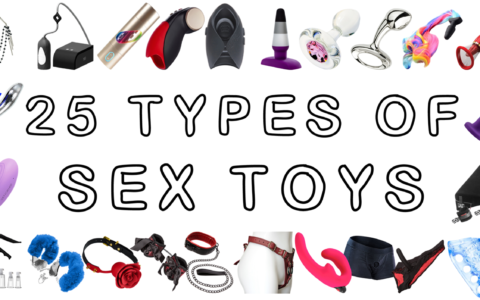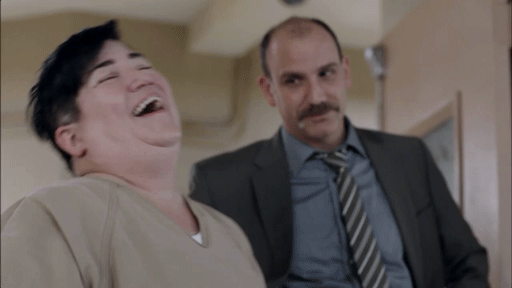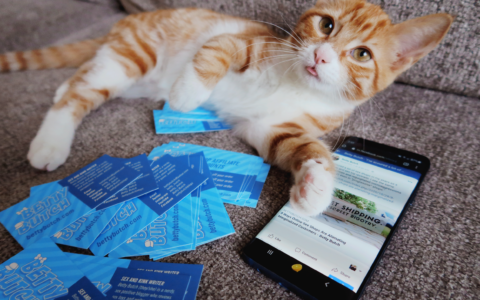
I’m finally reaching the end of my 20’s, which I’m glad for because they’ve been garbage until very recently. (What a fucking difference being above the poverty line makes.) Being a queer, poor, mentally ill 20-something was just a series of lessons about crisis management where all the answers boiled down to ‘do whatever it takes to outlive your problems’.
I want my 30’s to be a series of euphoric moments instead. Moments where I continue to celebrate my identity, relish the relief of financial stability, and embrace my limited capabilities as a valid part of my experiences. My 20’s are ending soon, but I survived them so I can really live now.
So with that sentiment in mind, here are 30 things about queer identity, poverty, and mental health that I learned from the miserable chaos of my 20’s. They helped me make it this close to 30, maybe they can help one of you.
10 Things on Queer Identity
1. It’s okay to claim labels you’re not 100% sure fit. Gender and queerness are a journey. Some people take a few wrong turns before they arrive at their destination, and some people’s destination marker keeps changing. Use words that you think feel right, and change them if you change your mind. Or reject the idea of specificity entirely if that works better for you!
2. Don’t look at Pride events to affirm you, they’re mostly corporations and cops courting your favor without actually doing anything to help the community. Look to your fellow attendees. Soak up the joy of being in the open air together. We’re here and we’re alive.
3. Follow people like you on social media and seek out reflections of you in media. And not just the broadest similarities – search out people and media that shares all or most of your intersections. I felt alienated in the queer community until I found fellow fat and autistic folks. I watch less TV and more Youtube to see representation.
4. Let yourself be flexible. If you want to try something and the only thing holding you back is the worry that you’re invalidating/betraying your identity, consider just going for it. Maybe this is a new road or a changed destination. Maybe this is a mistake that you’ll learn from. Either way you’ll be discovering something.
5a. There will be straight, cis people who claim to understand you and your struggle. None of them ever will, not fully. And that lack of genuine understanding always poses a danger, especially when they’re confident in their inaccurate perception. Just be cautious.
5b. The A in LGBTQIA+ stands for asexual not ally, and thank fuck, because asexuals are cool and performative “allies” are cookie-seeking timebombs of resentment. Eventually they’re going to blow up, and the true colors hidden beneath their rainbow-striped Facebook avatar are gonna show.
6. Your identity doesn’t have to be watered down enough to not scare the cishets or the assimilation-minded among our peers. If your queerness or your gender expression makes people uncomfortable, the problem isn’t you.
7. People will tell you that your gender and orientation don’t matter, and that your investment in being seen as valid is the cause of any friction/struggle you experience. These people haven’t been in our position, and their opinion is gaslighting bullshit.
8. There are shitty gatekeepers even in the community, like trans-exclusionary radfems, ace exclustionists, and biphobic gays and lesbians. There are also self-proclaimed arbiters of LGBT history who will nitpick and shame you for your labels and experiences. They’re all bags of misdirected hot air, but they’re also dangerous. Be cautious. Push back if/when you can.
9. To add to that last point: You are enough. You’re queer enough, trans enough, ace enough. You will constantly feel invalidated by society, by the LGBT community, by the self-doubt seeded into your thoughts. You’re enough, even if you’re still not yet sure what you’re “enough” of.
10. It’s not as simple as “it gets better.” But some of it does improve. The world will change around you: politicians will come and go, laws will be changed, reflections of you will crop up in books and shows and other people’s language. You’ll get away from people and places that hurt you, and you’ll find welcoming folks and new spaces where you can just be yourself. You’ll know who you are, or you’ll become content with not needing to know.
10 Things On Poverty
1. You will probably have to coexist with terrible people in order to survive. Your bigoted family member, your openly misogynistic boss, your racist landlord. It sucks and you will feel guilty, but your resources are limited, and you don’t actually have a choice if the other option is homelessness or starvation.
2. Most of the food you can afford is garbage, and it will make your body weary. Feeling like crap isn’t your fault. Gaining weight even while you’re starving isn’t your fault. Still being hungry isn’t your fault.
3. You will feel humiliated whenever anyone notices how poor you are. They’ll see it in your bad skin, your worn and ill-fitting clothes, your teeth, the desperate way you first refuse and then accept free or unfinished food. You can survive humiliation.
4. Living paycheck to paycheck means sometimes you’ll have the money for a nice thing, and sometimes a month later you’ll be skipping meals. The nice thing wasn’t a mistake. You are worth so many more nice things. Don’t let yourself regret one of the few times you actually get something nice.
5. It’s okay that you aren’t some thrifty, problem-solving lifehacker. It’s okay if you don’t know how to sew so you had to staple your clothes back together, it’s okay if you’re too tired to follow recipes and just stick to TV dinners, it’s okay if you don’t know how or have time to coupon. You’re poor, not pinterest.
6. Get whatever government aid you qualify for, and expend energy fighting for it if you have to. Ignore the shame and ignore our culture’s judgment. You are legitimately owed this assistance, because this country has failed you. You have been set up to fall short.
7. Yeah, buying good shoes is smarter because they’ll last longer, but you only have $8. Buy the shitty ones, and when it rains or snows, wrap your feet in plastic grocery bags so you don’t soak your socks. Survival means being stuck in a cycle of owning barely usable shit; it’s not your fault.
8a. You’re always going to be tired and depressed. Splurge on the small things that make surviving until next week tolerable. Buy plastic utensils and paper plates because washing dishes is too much, buy that coffee on the way to work, grab your favorite candy bar instead of a tasteless offseason apple.
8b. Fuck the people who judge you for the aforementioned splurges. If someone’s targeting your choices, it’s not because they legitimately care about the planet, or poverty, or health. There are bigger, more sensible targets for that kind of activism. They just hate poor people.
9. Churches who offer assistance are almost always bullshit. A good litmus test is calling and asking if they require you to pray in order to get free food. If they say yes or talk in circles, stay away if you have other options. They’re only in it for recruitment and posturing, and the food is probably unwanted bullshit and/or expired.
10. Even when things go terribly wrong, you will be okay. Things have gone terribly wrong before. You figured it out. You endured. You slept on a friend’s floor or in your car for a year, you walked three miles to work when the buses didn’t run or you couldn’t pay fare, you cried through the pain daily until the nerves finally died in your bad tooth, you blistered your shoulder lugging a rucksack to the laundromat, but you’ve always made it. You’ll always make it. You don’t have nothing. You have tomorrow.
10 Things On Mental Health
1. The most useful thing I’ve learned about my own mental health is recognizing my limits and how they change from day to day. If I can acknowledge how “bad” I am today, I can be realistic about what I’m gonna accomplish. Fighting to be productive in any capacity when it’s a skip showering and watch Netflix kinda day only makes tomorrow’s bad day worse.
2. If you feel hesitant or embarrassed about being honest about why you’re canceling plans with someone, lie. Don’t waste spoons on figuring out how to articulate your condition to people you’re not comfortable disclosing to (currently or ever) and fucking lie.
3. Learn the little things that make you feel human and prioritize them whenever you can. Clean hair makes me more aware of my own sentience than anything else, so showering is paramount above all other necessities.
4. You are going to cause bullshit arguments because your illness will latch onto minuscule things and tell you that it’s the thing’s fault you feel this way today and not your illness. Try to recognize that shit early and apologize to the innocent parties.
5. It’s okay to avoid tv shows and books and articles that you know will upset you. It’s okay to stop watching that popular show your coworkers all love because it stresses you out too much. You don’t have to endure misery in exchange for entertainment. You can stick to the fluff. Joyful, low-stakes media has merit too.
6. When you feel obligated to complete a task beyond your spoon scope, ask yourself if this is a ‘should do’ or ‘have to do’. Should’s are related to feelings of impending judgment: I should do this task because if I don’t I’m pathetic, or my mom will be mad, or my husband will be annoyed. Have to do’s are non-negotiable for your survival. Only the latter are important. Fuck should. Focus on making it.
7. You’re going to have terrible, invasive thoughts. Sometimes they’re urges to hurt yourself, sometimes they’re hateful things towards innocent parties, sometimes they’re exaggerated fears or sorrows. Let them come, acknowledge them, and try to recognize that you don’t have to give them any additional space in your day.
8. It’s good advice to take stock of yourself when you’re feeling terrible to see if any of it’s addressable. (Have you eaten recently? Are you too hot/cold? Do you need a nap? Does your space need tidying?) It’s even better advice to make self-assessment a routine. Sometimes you’ll fall into numbness instead and not notice. Sometimes you’re just on the verge of feeling terrible. Assess it now.
9. You might be too depressed, too anxious, too fixated to accomplish or enjoy what others take for granted. You might feel ashamed or like you’re missing out. But you don’t live someone else’s life, you live yours. You don’t need to do big new things to feel joy. You don’t need titles and awards to feel accomplished. Make it to tomorrow, and the day after. Pause and feel the sunlight through your blinds, boop noses with your cat, watch a new episode of Steven Universe. Feel satisfaction when and where you can, and stop trying to measure it by somebody else’s.
10. It’s okay to always be the sad, exhausted bitch. We’re the Eeyores and even if nobody else notices us, we notice each other. Hang in there, pajamas-in-the-daytime, Netflix and Existential Crisis bud. We’ll get around to taking a shower in a few days, or we’ll just order some dry shampoo on Amazon.




2 Comments